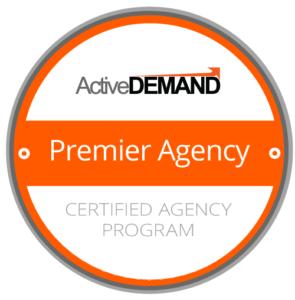Mastering marketing automation and its integration with CRM (Customer Relationship Management) systems is not just a trend; it’s a transformative step towards efficiency and effectiveness. Let’s explore the depth of marketing automation’s capabilities, its time-saving benefits, popular CRM tools, and the critical importance of marketing automation in our field.
The Extent of Marketing Automation Capabilities
Marketing automation in senior living marketing can encompass a vast range of activities. From automated email campaigns and social media management to lead tracking and nurturing, it can cover almost every aspect of marketing. Advanced systems can even predict the best times to contact leads or suggest the most effective content for different segments of your audience.
Some of the most popular uses of marketing automation include:
- Email Marketing: You can automate email campaigns, including sending personalized emails, scheduling follow-ups based on user behavior, and segmenting your email list for targeted messaging.
- Lead Generation & Nurturing: Marketing automation helps capture leads through forms on your website, social media, or landing pages. You can then nurture these leads with automated workflows, providing them with relevant content based on their interests and interactions.
- Social Media Management: Automation tools can schedule and publish posts across multiple social media platforms. They can also track engagement, respond to messages, and analyze social media performance.
- Analytics & Reporting: Marketing automation platforms provide insights into campaign performance, including email open rates, click-through rates, website traffic, lead conversion rates, and more. This data helps optimize marketing strategies.
- Customer Segmentation: You can segment your audience based on demographics, behavior, interests, or purchase history. This segmentation allows for personalized marketing messages tailored to specific customer segments.
- Lead Scoring: Marketing automation software can assign scores to leads based on their interactions with your content and website. This helps prioritize leads for sales follow-ups, focusing on those most likely to convert.
- Workflow Automation: Create automated workflows for various marketing processes, such as lead nurturing, customer onboarding, upselling, and re-engagement campaigns. This saves time and ensures consistency in your marketing efforts.
- CRM Integration: Many marketing automation platforms integrate with Customer Relationship Management (CRM) systems, allowing seamless data transfer between marketing and sales teams. This integration improves lead management and communication.
- Personalization: Automation enables personalized marketing at scale by dynamically inserting customer names, preferences, or past behaviors into emails, landing pages, and advertisements.
- A/B Testing: You can conduct A/B tests to compare different marketing elements, such as subject lines, CTAs, or content variations. Automation tools track these tests and provide insights into which elements perform best.
Time-Saving Benefits
The integration of marketing automation with CRM systems can save days, weeks, or even months of time. It streamlines repetitive tasks, like sending follow-up emails or updating lead status, which can otherwise consume a substantial portion of your workday. Automation ensures these tasks are performed more efficiently and without human error, allowing marketing teams to focus on more strategic and creative tasks.
Popular CRM Tools: HubSpot & ActiveDEMAND
Among the myriad of CRM tools available, HubSpot stands out for its user-friendly interface and comprehensive features that cover sales, marketing, and customer service. Its marketing automation capabilities are robust, offering everything from email automation to social media scheduling and lead scoring.
ActiveDEMAND, on the other hand, is known for its powerful marketing automation features, particularly for small to medium-sized businesses. It offers unique capabilities like call tracking and an integrated approach to multi-channel marketing.
In-Depth Analysis: The Importance of Marketing Automation
The importance of marketing automation in senior living marketing cannot be overstated. A study by Invespcro found that marketing automation drives a 14.5% increase in sales productivity and a 12.2% reduction in marketing overhead. Moreover, 80% of marketers using automation software generate more leads, with 73% of conversions coming from email marketing efforts.
Automation aligns marketing efforts with consumer behavior, as evidenced by Gartner’s research showing that companies that automate lead management see a 10% or greater increase in revenue in 6-9 months. This synchronization is vital in senior living marketing, where understanding and addressing the unique needs of each lead is critical.
Next Steps
By embracing the full potential of marketing automation and integrating it seamlessly with CRM systems, senior living marketers can unlock unprecedented levels of efficiency and effectiveness in their campaigns. Contact our experts to see how marketing automation can save you time and increase occupancy.





